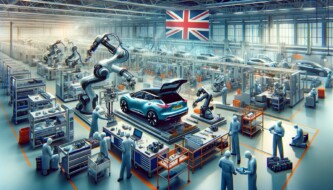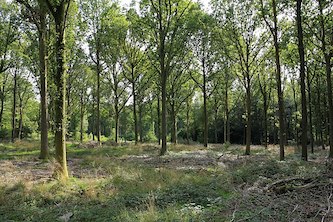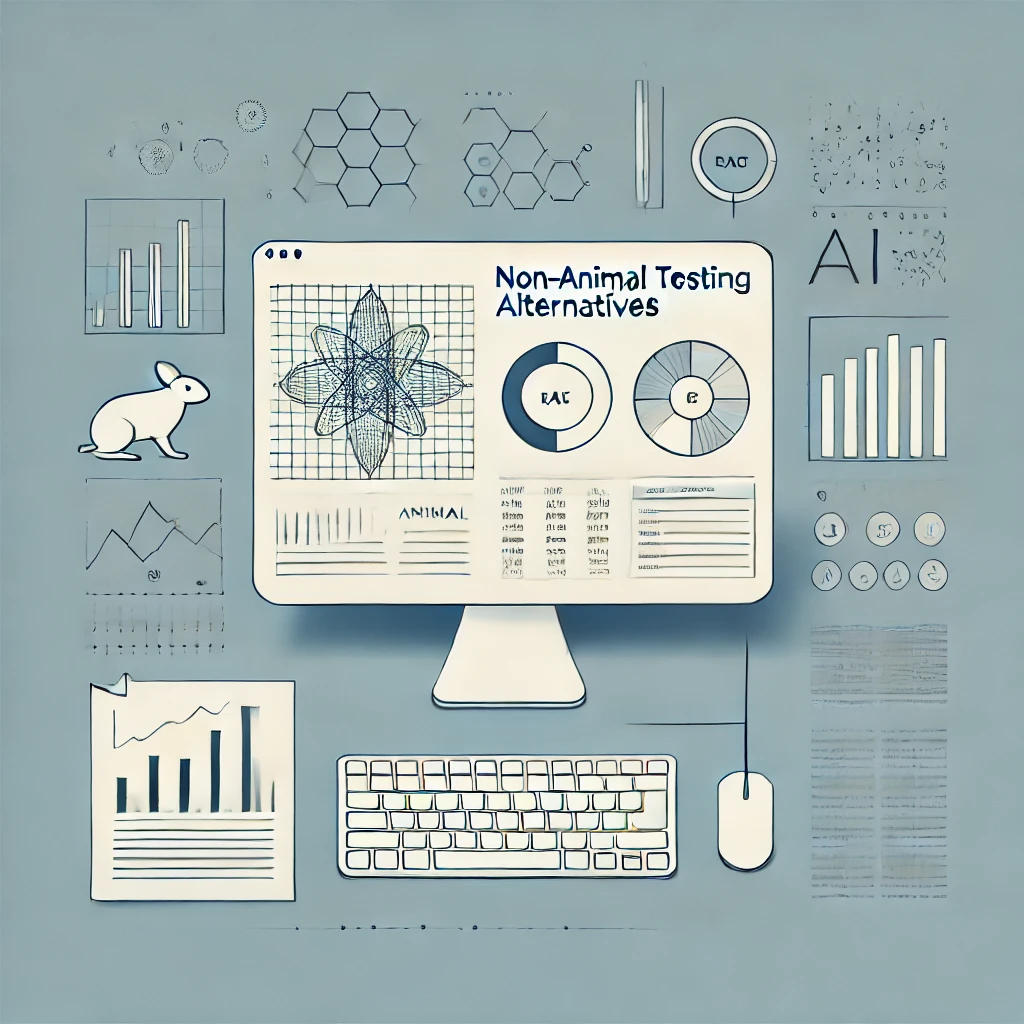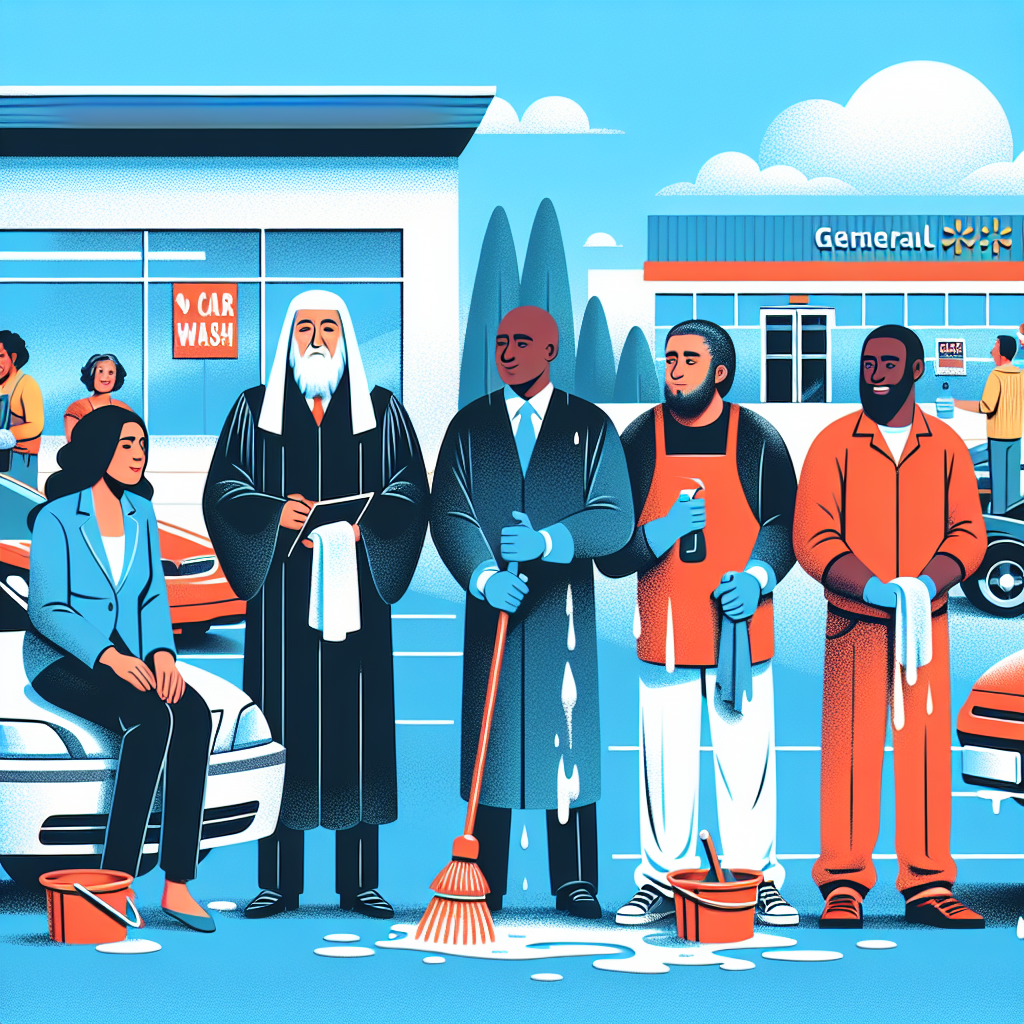Nissan and its friends are going to spend a lot of money, £2 billion, to make three new electric cars in a big factory in Sunderland, UK. They will make electric versions of cars called Qashqai and Juke, and also make a new version of another electric car called the Leaf. This big spend will help keep 6,000 people working at the factory and more people working in other places in the UK. They also need to build a really big battery factory to make this work.
The UK government said there will be a special area in North East England to help businesses grow, and this should make over 4,000 new jobs in five years. Nissan spending this money is good news for making cars in the UK, which has been hard because of Brexit and costs. Before, Nissan said their big factory might not work if there were no good trade deals after Brexit. But the UK government is helping Nissan with some money, about £100 million.
Nissan making electric cars in the UK is very important for what they want to do because they send 80% of the cars they make to other countries. The UK government decided to wait longer, until 2035, before stopping the sale of new cars that use petrol or diesel. This means that by the year 2027, only 38% of new cars sold in the UK might be electric, which is less than what people thought before.
Original news source: Nissan to lead £2bn investment in UK electric car plant (BBC)
Listen
Slow
Normal
Fast
Group or Classroom Activities
Warm-up Activities:
– News Summary
Instructions: After reading the article, students will work in pairs or small groups to summarize the main points of the article in their own words. They should try to include important details such as the amount of money Nissan is spending, the cars they are making, and the impact on jobs in the UK.
– Vocabulary Pictionary
Instructions: Divide the class into teams. Give each team a set of vocabulary words related to the article (e.g. electric cars, factory, trade deals). One student from each team will come to the front of the class and draw a picture to represent one of the words. The other students in the team must guess the word based on the drawing.
– Pros and Cons
Instructions: Divide the class into two groups. One group will brainstorm the pros of Nissan’s decision to make electric cars in the UK, while the other group will brainstorm the cons. After a few minutes, each group will share their ideas with the class. This activity encourages critical thinking and discussion.
– Opinion Spectrum
Instructions: Create a line on the board with “Strongly Agree” on one end and “Strongly Disagree” on the other end. Read out statements related to the article (e.g. “Nissan’s decision to make electric cars in the UK is a positive step”). Students should stand next to the point on the spectrum that represents their opinion on the statement. Allow students to explain their reasons for their position.
– Future Predictions
Instructions: In pairs or small groups, students will discuss and make predictions about the future of electric cars in the UK. They should consider factors such as government policies, technological advancements, and consumer demand. Each group will present their predictions to the class.
Comprehension Questions:
1. How much money is Nissan going to spend to make three new electric cars?
2. Which cars are they going to make electric versions of?
3. How many people will be working at the factory in Sunderland?
4. What special area will help businesses grow in North East England?
5. How many new jobs are expected to be created in five years?
6. Why is Nissan spending this money good news for making cars in the UK?
7. When will the UK stop the sale of new cars that use petrol or diesel?
Go to answers ⇩
Listen and Fill in the Gaps:
Nissan and its friends are going to spend a lot of money, £2 billion, to make three new electric cars in a big factory in Sunderland, UK. They will make electric versions of cars (1)______ (2)______ and Juke, and also make a new version of another electric car called the Leaf. This big spend will (3)______ keep 6,000 people working at the factory and more people working in other (4)______ in the UK. They also need to build a really big battery factory to make this work.
The UK government (5)______ there will be a special (6)______ in North East England to help businesses grow, and this should make over 4,000 new jobs in five years. Nissan spending this money is good news for making cars in the UK, which has been hard because of Brexit and costs. Before, (7)______ said their big factory might not work if there were no good trade (8)______ after Brexit. But the UK government is helping Nissan with some money, about £100 million.
Nissan making electric cars in the UK is very (9)______ for what they want to do because they send 80% of the cars they make to other countries. The UK government decided to wait longer, until 2035, before stopping the (10)______ of new cars that use petrol or (11)______. This means that by the year 2027, only 38% of new cars sold in the UK might be (12)______, which is less than what people thought before.
Go to answers ⇩
Discussion Questions:
Students can ask a partner these questions, or discuss them as a group.
1. What are some benefits of making electric cars in the UK?
2. How do you think the new electric cars will help the environment?
3. Do you think it’s important for countries to make their own cars? Why or why not?
4. What do you think the government can do to help businesses grow?
5. How would you feel if you had a job at the Nissan factory in Sunderland?
6. Do you like electric cars? Why or why not?
7. What is a trade deal? Why is it important for Nissan’s factory?
8. How do you think the new battery factory will help make more electric cars?
9. Do you think it’s a good idea for the UK government to spend money on helping Nissan? Why or why not?
10. How would you feel if your country decided to stop selling petrol or diesel cars?
11. What do you think the UK government can do to encourage more people to buy electric cars?
12. Do you think it’s important for countries to reduce their dependence on petrol and diesel cars? Why or why not?
Individual Activities
Vocabulary Meanings:
Match each word to its meaning.
Words:
1. Nissan
2. electric
3. factory
4. spend
5. UK
6. jobs
7. cars
8. battery
Meanings:
(a) Vehicles with wheels that people drive
(b) A country in Europe
(c) Powered by electricity
(d) Use money to buy things
(e) A place where things are made
(f) A company that makes cars
(g) A device that stores and provides electricity
(h) Work that people do to earn money
Go to answers ⇩
Multiple Choice Questions:
1. How much money are Nissan and its friends going to spend to make three new electric cars?
(a) £1 million
(b) £500,000
(c) £10 billion
(d) £2 billion
2. Which cars will Nissan make electric versions of?
(a) Qashqai and Juke
(b) Leaf and Juke
(c) Qashqai and Leaf
(d) Micra and Juke
3. How many people will the new factory in Sunderland keep working?
(a) 1,000
(b) 6,000
(c) 10,000
(d) 500
4. How many new jobs will the special area in North East England create in five years?
(a) Over 4,000
(b) Over 1,000
(c) Over 10,000
(d) Over 500
5. How much money is the UK government helping Nissan with?
(a) £1 billion
(b) £500,000
(c) £100 million
(d) £10 million
6. What percentage of cars does Nissan send to other countries?
(a) 50%
(b) 20%
(c) 80%
(d) 90%
7. When did the UK government decide to stop the sale of new cars that use petrol or diesel?
(a) 2027
(b) 2035
(c) 2040
(d) 2050
8. What percentage of new cars sold in the UK might be electric by 2027?
(a) 50%
(b) 20%
(c) 10%
(d) 38%
Go to answers ⇩
True or False Questions:
1. Nissan and its partners will spend £2 billion to build three new electric cars in a factory in Sunderland, UK.
2. The UK government will create a special area in North East England to support business growth, which is expected to generate over 4,000 new jobs in five years.
3. The new electric cars will not be versions of the Qashqai, Juke, and Leaf models.
4. Nissan’s decision to invest in the UK is negative news for the country’s car manufacturing industry, which has faced challenges due to Brexit and rising costs.
5. In addition to the car factory, a large battery factory will also be built.
6. Producing electric cars in the UK is not crucial for Nissan because they export only 20% of the cars they manufacture to other countries.
7. This investment will help secure the jobs of 6,000 people at the factory and create more jobs in other parts of the UK.
8. The UK government is not providing financial assistance of approximately £100 million to support Nissan’s investment.
Go to answers ⇩
Write a Summary:
Write a summary of this news article in two sentences.
Check your writing now with the best free AI for English writing!
Writing Questions:
Answer the following questions. Write as much as you can for each answer.
Check your answers with our free English writing assistant!
1. What are Nissan and its friends going to spend a lot of money on?
2. Which three cars will Nissan make in the big factory in Sunderland?
3. How many people will be able to keep working at the factory because of this big spend?
4. What did Nissan say might happen to their big factory because of Brexit?
5. When will the UK stop selling new cars that use petrol or diesel?
Answers
Comprehension Question Answers:
1. How much money is Nissan going to spend to make three new electric cars?
Nissan is going to spend £2 billion to make three new electric cars.
2. Which cars are they going to make electric versions of?
They are going to make electric versions of the Qashqai and Juke cars, and also a new version of the Leaf.
3. How many people will be working at the factory in Sunderland?
Around 6,000 people will be working at the factory in Sunderland.
4. What special area will help businesses grow in North East England?
There will be a special area in North East England to help businesses grow.
5. How many new jobs are expected to be created in five years?
Around 4,000 new jobs are expected to be created in five years.
6. Why is Nissan spending this money good news for making cars in the UK?
Nissan spending this money is good news because it helps keep people working at the factory and in other places in the UK. It also shows that Nissan is committed to making cars in the UK despite the challenges of Brexit and costs.
7. When will the UK stop the sale of new cars that use petrol or diesel?
The UK will stop the sale of new cars that use petrol or diesel by the year 2035.
Go back to questions ⇧
Listen and Fill in the Gaps Answers:
(1) called
(2) Qashqai
(3) help
(4) places
(5) said
(6) area
(7) Nissan
(8) deals
(9) important
(10) sale
(11) diesel
(12) electric
Go back to questions ⇧
Vocabulary Meanings Answers:
1. Nissan
Answer: (f) A company that makes cars
2. electric
Answer: (c) Powered by electricity
3. factory
Answer: (e) A place where things are made
4. spend
Answer: (d) Use money to buy things
5. UK
Answer: (b) A country in Europe
6. jobs
Answer: (h) Work that people do to earn money
7. cars
Answer: (a) Vehicles with wheels that people drive
8. battery
Answer: (g) A device that stores and provides electricity
Go back to questions ⇧
Multiple Choice Answers:
1. How much money are Nissan and its friends going to spend to make three new electric cars?
Answer: (d) £2 billion
2. Which cars will Nissan make electric versions of?
Answer: (a) Qashqai and Juke
3. How many people will the new factory in Sunderland keep working?
Answer: (b) 6,000
4. How many new jobs will the special area in North East England create in five years?
Answer: (a) Over 4,000
5. How much money is the UK government helping Nissan with?
Answer: (c) £100 million
6. What percentage of cars does Nissan send to other countries?
Answer: (c) 80%
7. When did the UK government decide to stop the sale of new cars that use petrol or diesel?
Answer: (b) 2035
8. What percentage of new cars sold in the UK might be electric by 2027?
Answer: (d) 38%
Go back to questions ⇧
True or False Answers:
1. Nissan and its partners will spend £2 billion to build three new electric cars in a factory in Sunderland, UK. (Answer: True)
2. The UK government will create a special area in North East England to support business growth, which is expected to generate over 4,000 new jobs in five years. (Answer: True)
3. The new electric cars will not be versions of the Qashqai, Juke, and Leaf models. (Answer: False)
4. Nissan’s decision to invest in the UK is negative news for the country’s car manufacturing industry, which has faced challenges due to Brexit and rising costs. (Answer: False)
5. In addition to the car factory, a large battery factory will also be built. (Answer: True)
6. Producing electric cars in the UK is not crucial for Nissan because they export only 20% of the cars they manufacture to other countries. (Answer: False)
7. This investment will help secure the jobs of 6,000 people at the factory and create more jobs in other parts of the UK. (Answer: True)
8. The UK government is not providing financial assistance of approximately £100 million to support Nissan’s investment. (Answer: False)
Go back to questions ⇧















